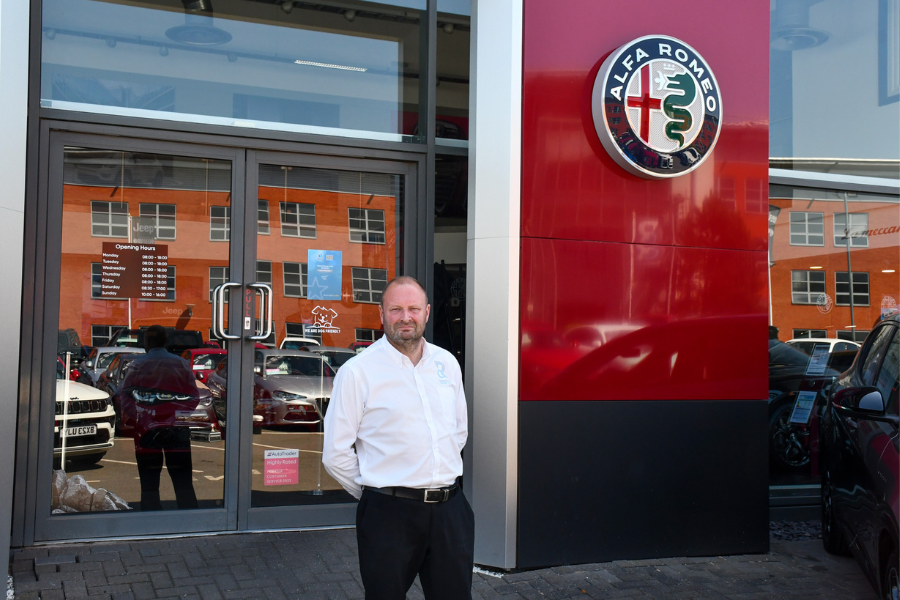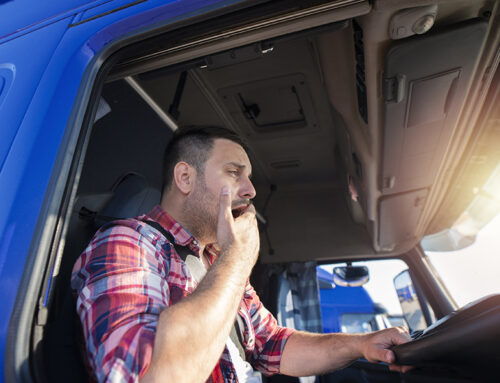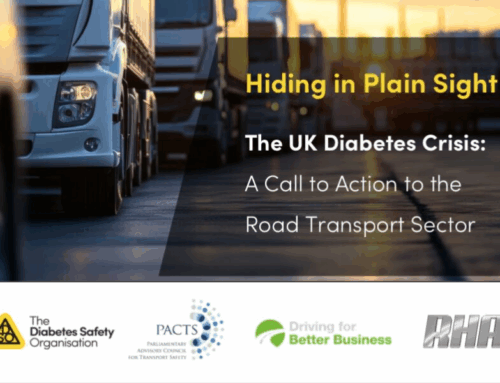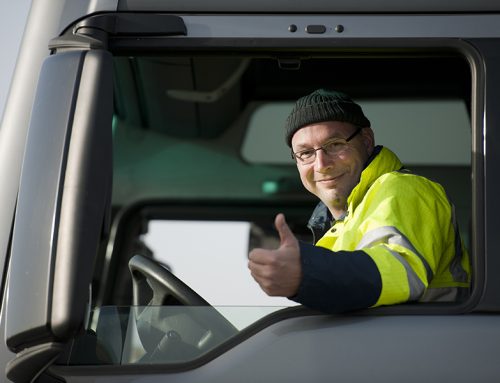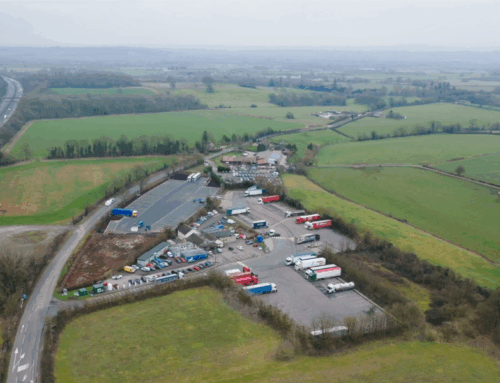Research Garage is a dealership specialising in Abarth, Alfa Romeo, Fiat, Jeep and Fiat Professional. It has two sites at Hinckley and Nuneaton, and while its own-use vehicles are minimal, its technicians and sales people are responsible for driving client cars and taking vehicles for test drives. It also owns Centurion Plant Hire, supplying the construction and civil engineering sectors. General manager, Mark Lines, tells us how he has embarked on a risk reduction campaign using Driving for Better Business, prioritising employee safety.
Hi Mark. Your vehicle use has an unusual profile, doesn’t it? Can you describe the mix of driving work your team does for us?
We have 35+ customer cars brought into our sites each day, plus perhaps 10 test drives for the sales team. We have 16 technicians who will service, repair, and then test the customer cars. So they and the sales team are always going out in different vehicles, different makes and models, and different sizes of vehicle. We also have three HGVs and eight vans, which deliver plant.
The lack of familiarity with a new vehicle can be a risk factor in its own right? How do you manage that?
I think by the very nature of our business, our staff can be quite blasé about it, because they have spent their lives working on cars, testing cars, or selling cars. So one of the things we have done is insist that regardless of what vehicle they are about to drive, they take the time to familiarise themselves with it and understand where the controls are and its features. Become comfortable. It doesn’t matter how busy you are, take this time to understand and know the vehicle. Otherwise we are more exposed than other types of businesses.
What inspired your road safety journey and your new approach to fleet governance?
I want to do everything I can to make sure we are as safe as we can be. I look after all the health and safety and policies here, and it occurred to me that driving risk is everybody’s responsibility really, not just mine as an individual. I looked up Driving for Better Business, and it was a very good toolkit to get every individual who drives involved and to be aware of their responsibilities, the risks and what’s involved.
If you ask an average technician going out to test a vehicle or drop it off, what are your risks, they’d say: Don’t be silly, I haven’t got any. Actually they have. So I want to make people more aware of that and help them to identify and reduce their risk.
On a personal level I’m an advocate for road safety. I’ve spent 16 years as a volunteer first responder for West Midlands Ambulance Service in my spare time. As part of that we look at risk and safety. I also think our roads have more traffic and often driving standards are poor. Not being involved in a collision should not be a matter of luck. We have to try to ensure that we are as safe as possible.
We invited our insurer to come and risk assess us and see what we were doing to mitigate risk.
That’s interesting because often H&S is a bit divorced from driving, isn’t it?
I think it’s one thing to have a minimum set of policies and health and safety requirements just to tick the boxes, but we want to go further than that. And absolutely, driving is part of health and safety. You know, our business is all about driving, whether it’s demonstrating a car delivering a car, delivering plant equipment, our technicians testing cars… everything is driving-based, you know? So we see it as very much see it as part of our H&S commitment. It’s not at the bottom of our health and safety policy, it’s right up there at the top.
So what specific actions have you taken?
First of all, we’ve made sure that all our staff have access to the available toolkits, including all the DfBB resources. We’ve had conversations with all staff to say: It doesn’t matter if you’re driving from here to Scotland, or for five minutes down the road, there are risks involved. And as individual, we need you to just think about that journey and not be blasé about it. Education is the first step.
So what benefits have you seen from doing this?
Ultimately, there’s less risk for us. I think it’s a very strong message to give to our customers: that while their car is in our custody we prioritise safety above all else. We respect and take care of your property and we think about how we drive. There will be an effect on our insurance – not necessarily a reduction, but an effect over time, because by showing that we go beyond what we must do to minimise risk, we should improve our claims history.
Ultimately if we look at our own vehicles, whether it be company vehicles, or vans or lorries, you know, we will see a benefit in fuel reduction and maintenance costs.
We’ve also factored in people thinking about their journeys, thinking about how they drive, and said to people: Look, you have a responsibility to drive this vehicle safely but also as fuel and maintenance efficiently as you can. That will have an impact on our running costs.
It’s early days, so I can’t measure benefits yet. But I think we will see significant improvements.
How useful have the DfBB resources been?
We signed up three months ago. The toolkits and resources are good because, if they want to, staff can look at them in their own time. We don’t expect them to use their own time, but in today’s business world, people always seem to be rushing and multi-tasking. If you insist on someone stopping to do training, it can seem like an added burden. This is a programme that people can look at in their own time, take information in their own time, and we can chat to staff about what they’ve done, and what they haven’t yet done. Early conversations with those who have looked at the toolkits say they’re quite keen to carry it on. It’s also good that we get regular bulletins on specific topics, and I now have staff asking when the next one is due, which is excellent.
When changes happen, such as to the Highway Code, we make sure that every single person who drives is notified through a staff-wide system.
Your business must be limited in the amount you can rely on technological solutions such as telematics or cameras?
All our company vehicles, including CVs, loan cars demonstration vehicles, or company cars, all have cameras and trackers in them. But you’re absolutely right, we can’t put a camera or tracker in a customer’s car, although some customers have them. So we’re limited to what we can look at. But we fit them to all company vehicles for two reasons: one, to offer a level of protection for our drivers, and two, so that we can investigate any incidents. Any member of our staff involved in an incident, however minor, is invited into a meeting with us, where we’ll do a review of what happened.
Recently we have started also suggesting they have driver training. Everyone always thinks they are an above average driver, so sometimes that doesn’t go down well, but we insist on driver training. We use the Institute of Advance Motorists, for a one-off assessment. We’ve put one staff member through this already, and to be fair to him, he said he learned some things and enjoyed it.
These days everyone should be expected to keep their professional skills sharp with ongoing or refresher training.
Have you personally refreshed your driving skills?
I’m an advanced driver with the Institute of Advanced Motorists and with ROSPA. I found the courses fascinating. Do I drive to that exact requirement every day? The honest answer is probably no. But the level of observation and awareness I was taught is always there and I’ve found it very useful. And because you are already qualified it isn’t pressured like a driving test, so you can enjoy learning.
I assume roadworthiness isn’t a problem for you, given all your technicians?
Obviously, all our vehicles are checked regularly, plus they are very new so everyone loves driving them. They come with apps now, as well as the cameras, so the staff have become quite competitive about their good driving scores. And that’s good, because they are engaged and reflective about it. They are conscious of how they drive, as opposed to journeys we make where we cannot even remember them afterwards.

